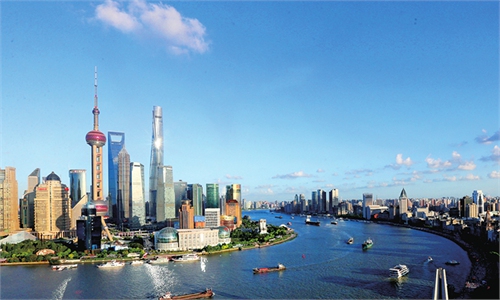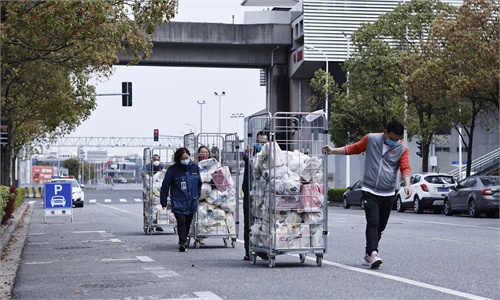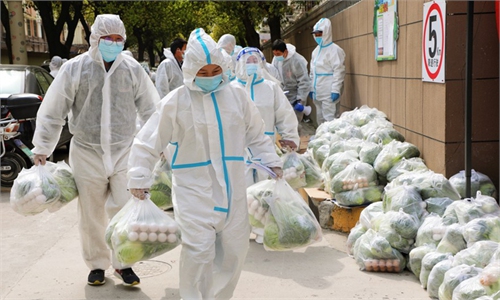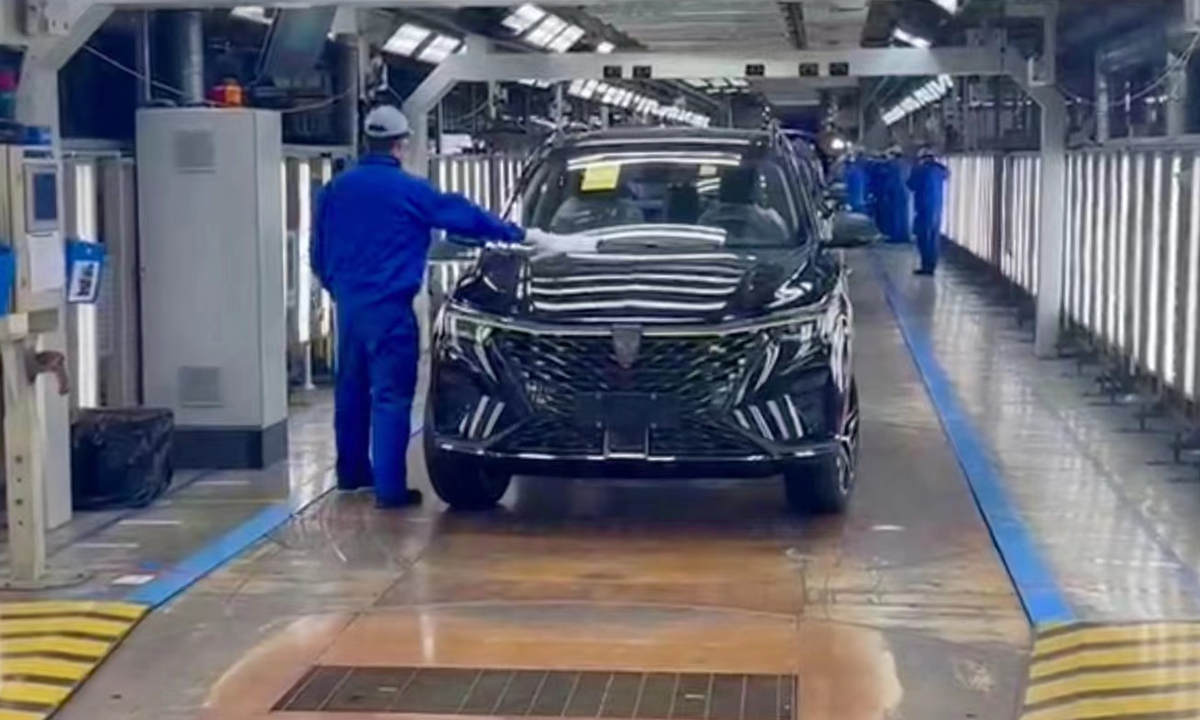
Photo: courtesy of SAIC Motor
Local authorities and companies in the Yangtze River Delta region, one of China's most crucial economic powerhouses, vowed on Tuesday to further improve what's known as a "whitelist" system designed to tackle logistics issues and help key industrial firms resume operations, as part of a nationwide race to both contain the COVID-19 epidemic and ensure economic activities.
Efforts will be made to further optimize the "whitelist", help restore supply chains of key enterprises and promote cross-provincial logistics and recognition of companies on the list, Wu Qing, vice mayor of Shanghai, said at a press briefing on Tuesday.
Transfer stations and relay trucking are expected to help ease and unclog the logistics system and facilitate the work resumption of the region in a coordinated way, experts said.
The first group of transfer sites covers six places in the Yangtze River Delta region - two in Shanghai, two in Hangzhou and Ningbo, East China's Zhejiang Province, and two that are under construction in East China's Jiangsu Province.
Each can meet the transit needs of 30 20-ton trucks per day, SAIC Anji Logistics, which built these sites and is operating them, said in a statement sent to the Global Times on Tuesday.
To eliminate virus transmission risks, the transfer points will operate under closed-loop management and contact-less delivery and pick-up processes with designated drivers, cargo trucks and routes, SAIC said.
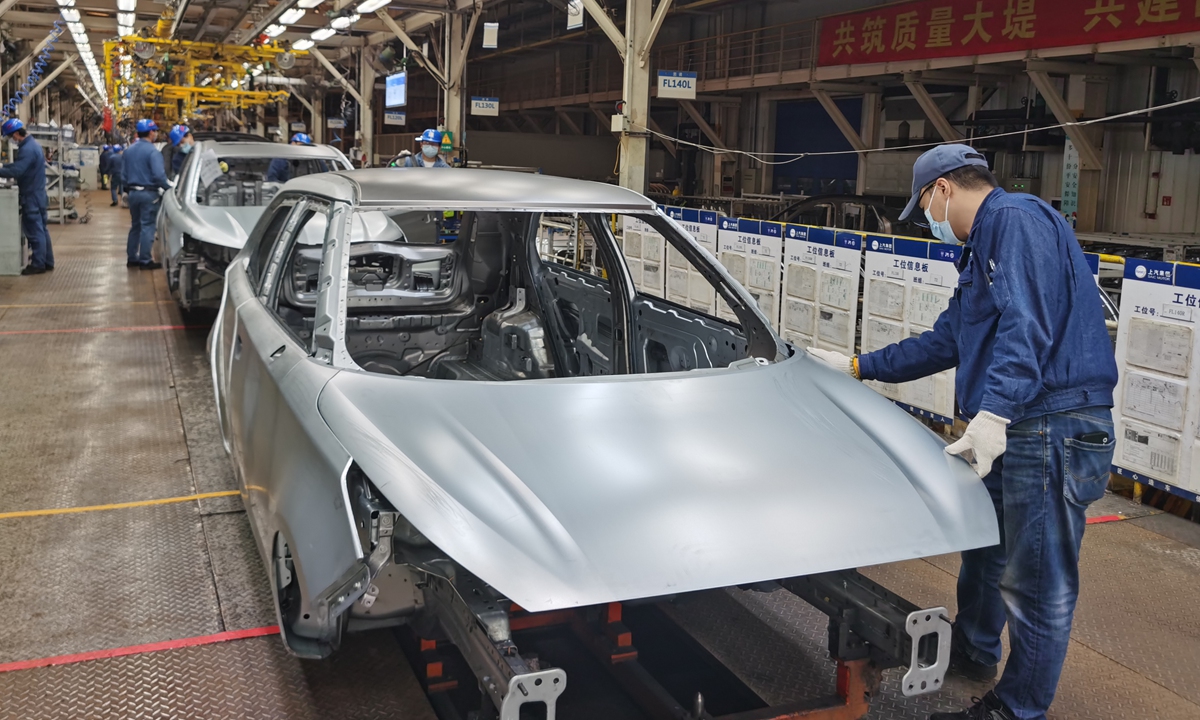
Photo: courtesy of SAIC Motor
The combination of transfer stations and relay trucking is expected to unclog logistics, which were previously restricted in different places, Zhang Xiang, a research fellow at the Research Center of Automobile Industry Innovation under the North China University of Technology, told the Global Times on Tuesday.
"With mechanisms like relay trucking, drivers in Shanghai only need to deliver the goods to the transfer station, and then drivers from the next station can pick up the goods. This can reduce quarantine requirements for drivers in cross-province transport," Zhang said.
An auto parts supplier based in Nantong, East China's Jiangsu Province, told the Global Times on Tuesday that the move could be an effective solution to the logistics woes.
The company has seen a drop of 50 percent in orders from its customers in Shanghai in recent weeks, the person said, adding that now even with orders coming in as Shanghai gradually resumes factory operation, no truck drivers are willing to carry cross-city goods due to worries of being unable to "come back."
"As long as truck drivers do not need to go into Shanghai, and hopefully the transfer station will not be too far from our factory site, the solution can work," said the person.
The Yangtze River Delta region, which includes East China's Zhejiang, Jiangsu and Anhui Provinces and Shanghai, is an important base for China's vehicle and semiconductor industries, accounting for over 20 percent of domestic auto output and nearly half that of the semiconductor industry.
Shanghai on Saturday announced its own "whitelist" of 666 leading manufacturers in the city to restart factory operations. This included over 200 auto parts companies, making up about one-third of the "whitelist," and nearly 70 integrated circuit industry companies.
Suzhou in Jiangsu may also create a "whitelist" that covers 393 key enterprises, mainly in the electronics industry, according to media reports. However, many industry insiders are still feeling the pain of insufficient and more costly logistics services.
"It will inevitably take longer and cost more with mechanisms like transfer stations," Zhang said.
A Shanghai-based vehicle control system supplier also expressed concern. "Whether the delivery will be ensured and completed in a timely manner remains a question. Therefore, small suppliers are still halting deliveries for the security of the goods," a person from the company told the Global Times on condition of anonymity. "We still haven't resumed operation and orders are delayed," he said.
At a teleconference on improving logistics flows and industry supply chains on Monday, Vice Premier Liu He stressed the need to stabilize China's supply chains and solve outstanding problems one by one in key regions.
Authorities have stressed that efforts must be taken to ensure that traffic permits for drivers are recognized across the country and transport should not be limited.
